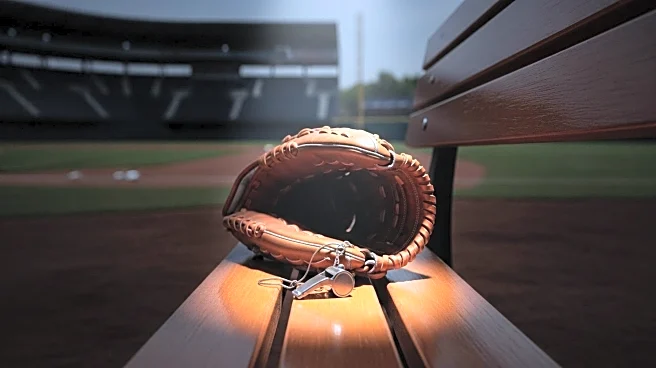What's Happening?
Sandy Alomar Sr., a former All-Star infielder and coach, has died at the age of 81. Alomar was known for his speed and fielding during his playing career, which spanned from 1964 to 1978 across six Major League Baseball teams, including the Milwaukee Braves, New York Mets, and New York Yankees. He was named an All-Star in 1970 and stole 227 bases throughout his career. After retiring as a player, Alomar transitioned into coaching, serving as the third-base coach for the San Diego Padres from 1986 to 1990 and later coaching for teams such as the Chicago Cubs and Colorado Rockies. His legacy continues through his sons, Sandy Alomar Jr. and Roberto Alomar, both of whom played under him in winter ball and the minors.
Why It's Important?
Sandy Alomar Sr.'s passing marks the loss of a significant figure in baseball history, particularly for his contributions as both a player and coach. His influence extended beyond his own career, impacting the development of future generations of players, including his sons, who have made notable contributions to the sport. Alomar's career highlights the importance of versatility and adaptability in professional sports, as he successfully transitioned from player to coach, leaving a lasting impact on the teams he worked with. His death is a moment for the baseball community to reflect on the contributions of past players and coaches who have shaped the game.
What's Next?
The baseball community is likely to honor Sandy Alomar Sr.'s legacy through tributes and memorials, celebrating his contributions to the sport. Teams he was associated with, such as the Cleveland Guardians, may hold commemorative events or moments of silence during games. His family, including his sons who are involved in baseball, may continue to uphold his legacy through their ongoing contributions to the sport. The impact of his career may also be revisited in discussions about the evolution of coaching and player development in Major League Baseball.
Beyond the Headlines
Sandy Alomar Sr.'s career exemplifies the broader cultural and familial connections within baseball, highlighting how the sport can serve as a bridge across generations. His story underscores the role of mentorship and leadership in sports, illustrating how experienced players can transition into coaching roles to guide younger athletes. Additionally, his career reflects the historical context of baseball during the 1960s and 1970s, a period of significant change and development in the sport.










